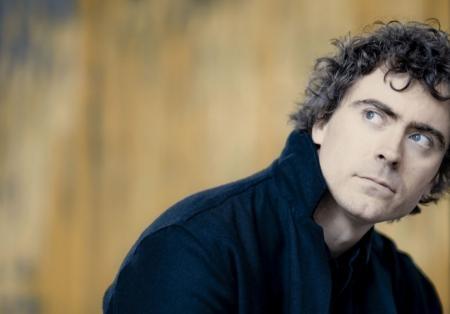Paul Lewis doesn't smile much. He came to the keyboard last night with his face tuned to his usual blank-to-grim setting for the first recital in his Schubert cycle at the Wigmore Hall: a serious man with serious business. If only I could take his piano playing as seriously as he clearly thinks we should.
As the British torch bearer to the sacred Austro-German school of pianism, as a protégé of the great Alfred Brendel, as a widely garlanded critical phenomenon, Lewis shouldn't be hard to admire. Yet his stiff musical posturing and disavowal of any short-term pleasures - colour, texture, detail, flexibility - is as appetising as gruel.
Worst hit in his onslaught of po-faced musical Calvinism were the many daydreams that litter Schubert's scores. We received a change of scenery at the watery hole (that should have been a black hole) that is the middle section of the first of the Drei Klavierstücke, D 946, and we got an over-choreographed moment of drama in each coda - most satsifyingly in the Reliquie Sonata, where three gaping caesuras followed three impotent shakes of the fist. But we always remained on dry land, on earth, our souls unstirred, our mind unruffled.
Boredom set in. Several times. Overpedalling swamped the first movement of the Reliquie; poor voicing ruined the Scherzo of the Piano Sonata in D, D 850. Phrasing throughout was upset by flimsy execution. He was indulging the broader arcs at the expense of the note-to-note drama.
Since last year's Proms, Lewis has learnt how to rumple the musical surface a little. I had even thought he might have loosened up a tad, perhaps hoping we'd at least end on a high. Surely, even po-faced Lewis could see the brilliant possibilities of the child-like capering and daydreaming of the Rondo finale of the D-major Sonata D 850. But no.
We skated through it, everything smothered and smoothed by ceaseless pedalling. The musical line tick-tocked without a flicker of a smile. Character came in the form of indulgent ritardandos and sentimental decrescendos and a middle section that plodded about like Dawn French pretending to be the Sugar Plum Fairy. An unintentional lapse into humour.
- Paul Lewis's continues his Schubert cycle with a repeat of last night's Wigmore Hall concert on 24 March
 Find Paul Lewis on Amazon
Find Paul Lewis on Amazon













Add comment